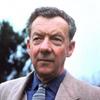Composer / Musician
Professional
Channels and Networks

Edward Benjamin Britten, Baron Britten OM CH, was a composer, conductor and pianist.
He was one of the most emblematic figures within 20th-century classical music, creating a huge range of works for opera, other vocal music, orchestral and chamber pieces. His best-known works include the opera Peter Grimes (1945), the War Requiem (1962) and the orchestral showpiece The Young Person's Guide to the Orchestra (1945).
Born in Lowestoft, Suffolk, Britten showed talent from an early age. To his mother's great delight he was an outstandingly musical child, unlike his sisters, who inherited their father's indifference to music and his brother although musically gifted was only interested in ragtime.
He started piano lessons when he was seven years old, and three years later began to play the viola. Britten was one of the last composers brought up on exclusively live music: his father refused to have a gramophone or, later, a radio in the house.
Composing is like driving down a foggy road toward a house. Slowly you see more details of the house-the colour of the slates and bricks, the shape of the windows. The notes are the bricks and the mortar of the house.
In September 1928 Britten went as a boarder to Gresham's School, in Holt, Norfolk and in 1930, he won a composition scholarship at the Royal College of Music (RCM) in London.
The first of Britten's compositions to attract wide attention were composed while at the RCM: the Sinfonietta, Op. 1 (1932), the oboe quartet Phantasy, Op. 2 and a set of choral variations A Boy was Born, written in 1933 for the BBC Singers, who first performed it the following year.
Britten was hired by the General Post Office Film Unit to compose the music for a publicity film. This first work led in turn to nearly 40 commissions for various documentaries, theatre, cinema and radio between 1935 and 1939.
I had to work quickly, to force myself to work when I didn’t want to. I had to write scores not for large orchestras but for six or seven instruments, and to make these instruments make all the effects that each film demanded.
In 1936, at the age of 23, Britten met the British tenor Peter Pears. Pears became his partner until Britten’s death, but was also the inspiration for and dedicatee of various works, including Seven Sonnets of Michelangelo and Death in Venice.
In 1945, he completed The Young Person's Guide to the Orchestra which had been written for an educational film, Instruments of the Orchestra, the film was directed by Muir Mathieson and featured the London Symphony Orchestra conducted by Malcolm Sargent. It became and remained, his most often played and popular work.
Britten's next opera, The Rape of Lucretia, was presented at the first post-war Glyndebourne Festival in 1946.
He wrote the comic opera Albert Herring for the English Opera Group in 1947.
The old idea of a composer suddenly having a terrific idea and sitting up all night to write it is nonsense. Nighttime is for sleeping.
In 1948, Britten with two colleagues (Pears and Crozier) launched and directed the Aldeburgh Festival. It was an immediate success and became an annual event that has continued into the 21st century. He composed new works in almost every festival until his death in 1976.
By the 1960s, the Aldeburgh Festival was outgrowing its customary venues and on the 2nd June 1967, the Queen opened the 830 seat Snape Maltings - it was immediately hailed as one of the best concert halls in the country. The hall was destroyed by fire in 1969, but Britten was determined that it would be rebuilt in time for the following year's festival, which it was. The Queen again attended the opening performance in 1970.
In 1967 the BBC commissioned Britten to write an opera specially for television, Owen Wingrave was based, like The Turn of the Screw, on a ghost story by Henry James.
I am an arrogant and impatient listener, but in the case of a few composers, a very few, when I hear a work I do not like, I am convinced that it is my own fault. Verdi is one of those composers.
Britten's last works include the Suite on English Folk Tunes "A Time There Was" (1974); the Third String Quartet (1975), which drew on material from Death in Venice; and the dramatic cantata Phaedra (1975), written for Janet Baker.
In June 1976, the last year of his life, Britten accepted a life peerage – the first composer so honoured – becoming Baron Britten, of Aldeburgh in the County of Suffolk.
Apart from from the three years spent in the United States from 1939 to 1942, Benjamin Britten never left his native region of Suffolk.
To learn more about Benjamin Britten click and explore any of his media channels and network links in the tool-bar above.



